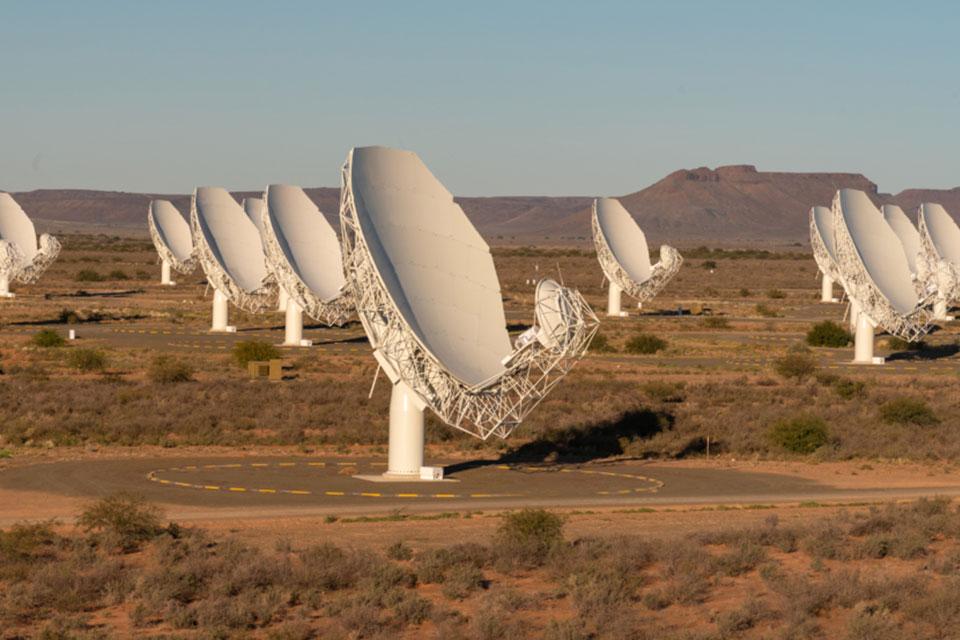The MeerKAT Team has been awarded the Royal Astronomical Society’s 2023 Group Achievement Award for Astronomy. MeerKAT is a radio telescope consisting of 64 antennas in the Northern Cape region of South Africa. The recipients of the award include institutions from South Africa, the UK, the Netherlands, Italy, the USA, France, Australia and Germany. Oxford is a leading contributor to the success of the MeerKAT project.
Remarkable advances in radio astronomy
After more than a decade of development and four years of operations, the MeerKAT team have, in a short time, achieved remarkable advances in radio astronomy. Among many breakthrough observations, the MeerKAT images of the Galactic Centre region revealed for the first time the amazing large-scale radio bubbles around Sgr A* and the evidence of a common origin for these bubbles. MeerKAT also tracked the radio afterglow of the first ever observed neutron star merger event and revealed powerful ejections from a stellar-mass black hole and contributed to the detection of the first afterglow from a gamma-ray burst detected by ground-based Cherenkov telescopes.
As well as its extensive scientific output, MeerKAT has played a major role in helping to train the next generation of radio astronomers in Africa; more than 1,000 scholarships have been awarded to science and engineering students in South Africa and beyond and many of the recipients of this programme are now emerging researchers and lead authors on MeerKAT publications. MeerKAT has also played an essential role in stress-testing the technology for the Square Kilometre Array (SKA), the super sensitive international radio telescope that is currently under construction.
Iconic MeerKAT image
In Oxford, research teams led by Professors Rob Fender, Matt Jarvis and Aris Karastergiou in the Astrophysics sub-department are helping to maximise the scientific harvest from this extraordinary telescope. The research which led to the iconic MeerKAT image of the galactic centre was led by Oxford’s Dr Ian Heywood.
Professor Rob Fender, Head of Astrophysics at the University of Oxford and also Visiting SKA Professor at the University of Cape Town comments: ‘Our research with MeerKAT covers areas as diverse as explosive astrophysical transients, deep radio galaxy surveys and precise timing of radio pulsars.’
Transformational telescope
‘The telescope has been transformational, and we look forward to many more years of productive collaboration with the project as the array grows towards the Square Kilometre Array,’ adds Dr Ian Heywood.
Previous winners of the RAS group achievement award include the Event Horizon Telescope Project, The Planck team, The LIGO team and the Oxford-led Zooniverse project.
Read the South African Radio Astronomy Observatory (SARAO) statement.

